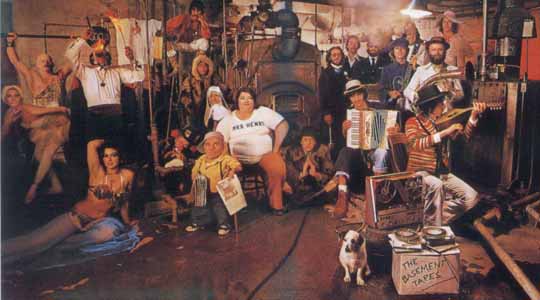My guess is that this news will send the price of silver down - temporarily.Warren Buffett Sells the Family Silver
By Jon A. Nones07 May 2006 at 12:57 PM EDT
St. LOUIS (ResourceInvestor.com) -- With the market abuzz with anticipation of what Wall Street legend Warren Buffett intends to do with Berkshire Hathaway’s $40 billion in cash, a small, but perhaps very significant little bit of news may have been overshadowed.
At the company’s shareholder meeting in Omaha, Nebraska on Saturday, Chairman Warren Buffett announced that the company has divested its silver holdings.
David Morgan, author of “
The Morgan Report,” sent a note to clients quoting an anonymous source at the Berkshire meeting who confirmed the sale.
According to the source, no sell price, date or addition data were given other than the announcement that the company not longer owned any silver.
The source said Buffett didn't really talk about silver other than he sold it, but said he would rather hold businesses that have earnings.
According to
news sources today, Buffett told shareholders, “We had a lot of silver at one time but we don't have it now.”
In 1997, Buffett purchased an estimated 130 million ounces for delivery in 1998. In February 1998, the silver price jumped to a high of $7.81/oz, rallying 50% since mid-1997.
The
CPM Group estimated earlier this year that Buffett still held somewhere between 100 and 129 million ounces.
Buffett said that Berkshire had not benefited from the particularly steep rise in silver prices.
“I bought it very early, I sold it very early. Other than that it was perfect,” he joked.
Silver hit a 23-year peak of $14.68 two weeks ago. On Friday, July silver futures closed at $13.89 an ounce.
Buffett said he detected speculative participation in the recent run up in prices, particularly metals.
“What the wise man does at beginning, the fool does in the end... any asset that has a big move based on fundamentals will attract speculators...,” he said, according to
sources.“Something like copper is speculative on both sides of the market, and responding more to speculative than fundamental forces,” he added.
However, it might important to note the timing of Barclays’ silver ETF iShares Silver Trust [AMEX:
SLV], which just launched
on April 28.Jason Hommel, Editor of “
Silver Stock Report” previously told Resource Investor that “we just don’t know” where the silver will come from to back the ETF, and it is possible that Warren Buffett could be the supplier, which isn’t causing a shortage in the market.
Furthermore, the SEC seemed to easily dismiss the opposition
by the Silver Users Association and comments from sources about the illiquidity of the silver market in its 32-page order.
Many analysts estimated that the ETF would need perhaps as much as 130 million ounces of silver to cover investment demand - the same amount Buffet originally bought in 1997.
Barclays’ Christine Hudacko could not be reached for comment.
 Sometimes I just can't resist this stuff from NASA.
Sometimes I just can't resist this stuff from NASA.









 "How Bad Is Inflation in Zimbabwe?
"How Bad Is Inflation in Zimbabwe?